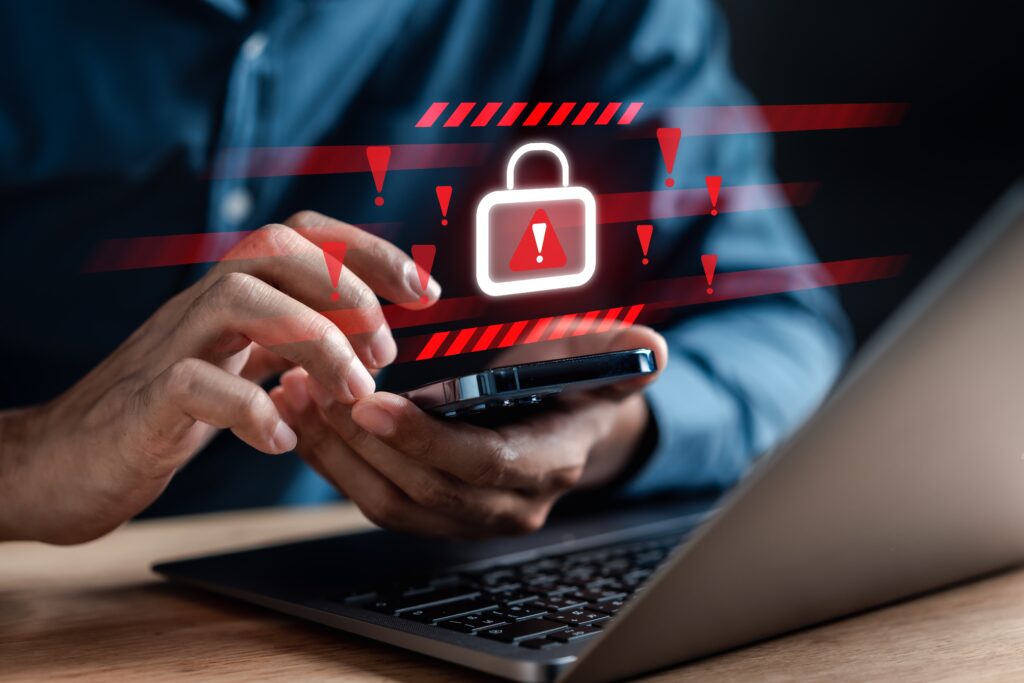In today's digital age, data breaches have become an unfortunate reality that can affect anyone, from individuals to large corporations.
A data breach occurs when sensitive, confidential, or protected information is exposed, stolen, or used by an unauthorized person. This can include personal data such as names, addresses, Social Security numbers, financial information, and even medical records. If you suffered damages due to the data breach, a data breach attorney can help you explore your legal options and protect your rights.
So, what data is most vulnerable to a data breach?
The most vulnerable data in a breach is typically personal identifying information (PII) and financial data. This includes Social Security numbers, birthdates, addresses, credit card numbers, and bank account details. Hackers target this information because it can be used for identity theft, financial fraud, and other nefarious purposes.
How Hackers Use Personal Identifying Information (PII) from Data Breaches
When hackers gain access to personal identifying information (PII) through a data breach, they can exploit this sensitive data in various ways, causing significant harm to the affected individuals. Some of the most common ways hackers use PII include:
Identity Theft
One of the most prevalent uses of stolen PII is identity theft. With access to information such as names, addresses, birthdates, and Social Security numbers, hackers can open new credit accounts, take out loans, or apply for government benefits in the victim's name.
This can result in significant financial losses and damage to the victim's credit score, which can take years to repair.
Financial Fraud
Hackers can use stolen financial information, such as credit card numbers and bank account details, to make unauthorized purchases or withdraw funds from the victim's accounts. They may also sell this information on the dark web to other criminals who specialize in financial fraud.
Phishing Scams
PII obtained from data breaches can be used to create highly targeted phishing scams. Hackers can craft convincing emails or messages that appear to come from legitimate sources, using the victim's personal information to make the communication seem more authentic. These scams aim to trick the recipient into revealing additional sensitive data or downloading malware onto their devices.
Medical Identity Theft
Medical records are increasingly targeted in data breaches due to the wealth of personal and financial information they contain. Hackers can use this data to obtain medical services or prescription drugs in the victim's name, potentially exhausting their insurance benefits or leaving them with fraudulent medical bills.
Social Engineering
PII can be used in social engineering attacks, where hackers manipulate victims into disclosing additional sensitive information or granting access to secure systems.
By leveraging stolen personal data, attackers can create a false sense of trust and credibility, making it more likely for the victim to fall for their deceptive tactics.
Reputational Damage
In some cases, hackers may use stolen PII to cause reputational harm to the victim. They may post sensitive personal information online, impersonate the victim on social media, or engage in cyberbullying or harassment.
Blackmail and Extortion
Hackers may threaten to release or misuse the victim's PII unless they pay a ransom or meet other demands. Extortion can cause panic, as they may feel powerless to prevent the exposure of their sensitive data.
Long-Term Consumer Consequences of Data Breaches
Victims of identity theft and financial fraud may face a lengthy and complicated process to restore their credit and recover lost funds.
The emotional toll of dealing with these issues can lead to stress, anxiety, and a loss of trust in digital systems.

To minimize the risk of falling victim to these schemes, safeguard your PII as much as possible. Be cautious about sharing personal information online, use strong and unique passwords, and regularly monitor your credit reports and financial statements for suspicious activity.
Consequences of Data Breaches for Companies
When a company experiences a data breach, reputational damage is one of the most immediate impacts. Consumers are increasingly aware of the importance of data privacy and security.
A data breach can erode customer trust and loyalty, as affected individuals may feel their personal information has been mishandled or inadequately protected. This loss of trust can lead to a decline in sales, canceled subscriptions, or a mass exodus of users to competitors perceived as more secure.
Companies may face fines and penalties from regulatory bodies for failing to comply with data protection laws, such as the General Data Protection Regulation (GDPR) or the California Consumer Privacy Act (CCPA).
Negative media coverage and public scrutiny can linger long after the initial breach, making it difficult for the company to regain customer trust and attract new business.
In some cases, a data breach can even lead to the downfall of a company, particularly if the company failed to protect your data or respond adequately to the breach.
What Should I Do if a Data Breach Compromises My Data?
If you suspect a breach compromised your personal data, act quickly to minimize potential damage. First, change your passwords for any affected accounts and enable two-factor authentication when possible.

Monitor your credit reports and financial statements closely for any suspicious activity. Consider placing a fraud alert or security freeze on your credit files to prevent unauthorized access.
You may also have legal recourse if you suffered damages due to a data breach. This is where a consumer protection attorney can help you. If lax security on the part of a company resulted in the theft of your data, you may file suit against the company. These lawsuits can result in significant settlement or judgment amounts.
Companies may also face class action lawsuits, where a group of affected individuals collectively sue the company, potentially magnifying the financial impact. Consumers may seek compensation for damages such as identity theft, financial fraud, or emotional distress.
While you can't always prevent a data breach, you can protect your data and minimize your risk. Be cautious about sharing personal information online, use strong and unique passwords, and keep your software and security measures current.
By staying vigilant and knowing your rights, you can better navigate the aftermath of a data breach and safeguard your sensitive information.
Contact Kazerouni Law Group If You Are the Victim of a Data Breach
If you suffered damages due to the misuse of your PII following a data breach, a consumer protection attorney can help you explore your legal options. They can assist you in filing a lawsuit against the company responsible for the breach, seeking compensation for any financial losses, credit monitoring costs, and other related expenses.
Remember, you have rights as a consumer, and holding companies accountable for failing to protect your data can promote better cybersecurity practices and prevent future breaches. Call our firm at 800-400-6808 or contact us online to talk to an experienced data breach lawyer.